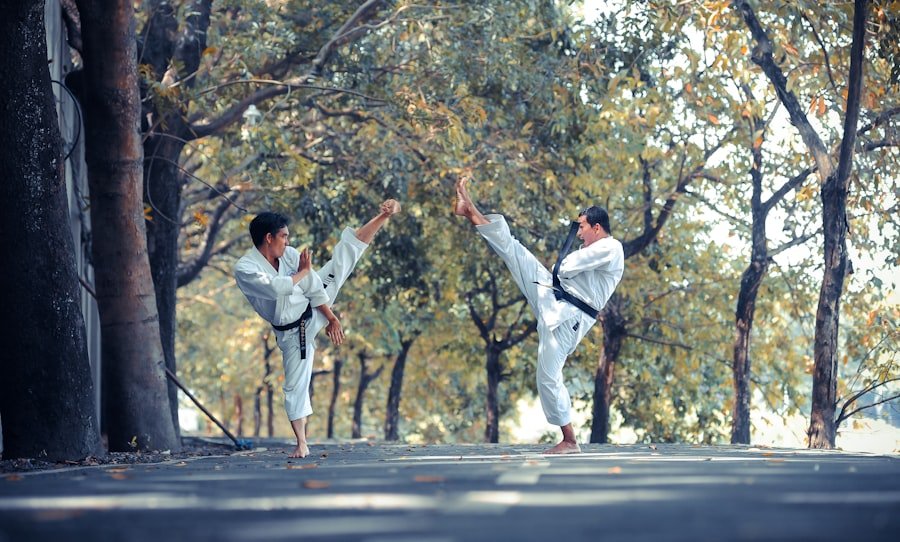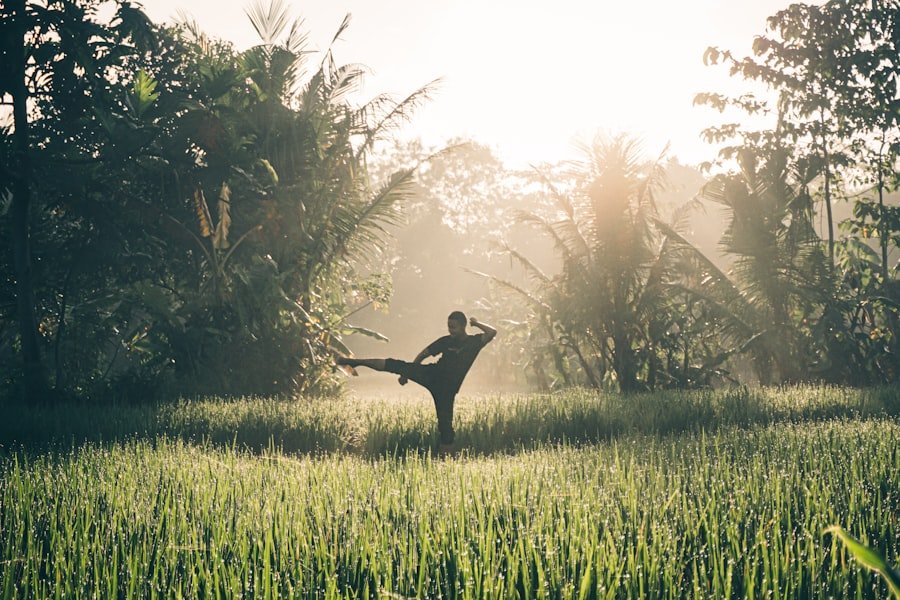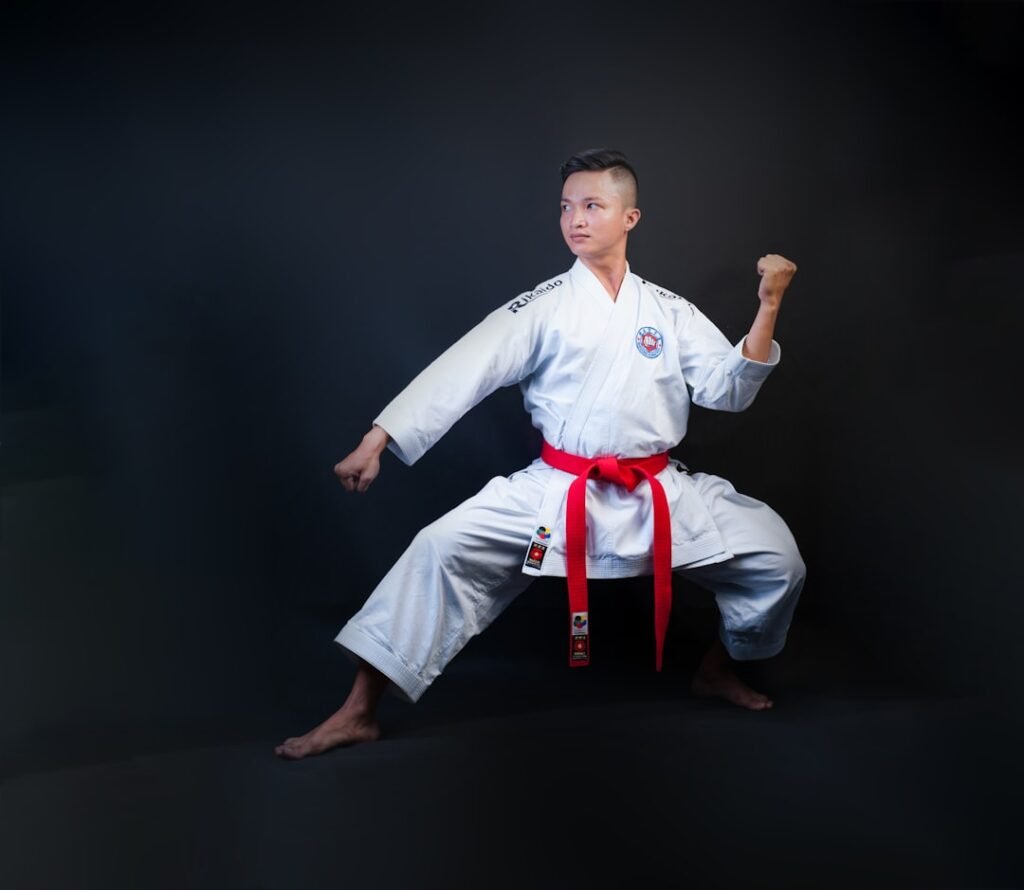In recent years, there has been a notable surge in the popularity of Mandarin within Oslo’s martial arts community. This trend is not merely a reflection of the growing interest in Chinese martial arts but also an acknowledgment of the language’s significance in understanding the cultural nuances that underpin these ancient practices. As more practitioners seek to deepen their knowledge and skills, they are increasingly recognising that mastering Mandarin can enhance their training experience and provide them with a richer context for their practice.
The rise of Mandarin is emblematic of a broader cultural exchange, where language serves as a bridge connecting practitioners to the philosophies and traditions that inform their martial arts journey. The integration of Mandarin into the martial arts scene in Oslo has also fostered a sense of community among practitioners. Language classes, workshops, and cultural events centred around Chinese martial arts have become commonplace, creating opportunities for enthusiasts to engage with one another on a deeper level.
This communal aspect not only enriches the training environment but also cultivates friendships and networks that transcend linguistic barriers. As practitioners share their experiences and insights, they contribute to a vibrant tapestry of knowledge that enhances the overall martial arts culture in Oslo. Spaces are filling up fast! Register for Chinese classes at the LC Chinese School in Oslo today.
Table of Contents
ToggleSummary
- The rise of Mandarin in Oslo’s martial arts community reflects a growing interest in Chinese martial arts and culture.
- Exploring the connection between language and power in martial arts reveals the influence of Mandarin on the mindset and discipline of Oslo’s martial artists.
- Mandarin is empowering Oslo’s martial artists by providing access to a rich tradition of Chinese martial arts and philosophy.
- The influence of Chinese martial arts on Oslo’s martial arts scene highlights the role of language in achieving a flow state in martial arts practice.
- Embracing diversity and inclusivity through the study of Mandarin in Oslo’s martial arts community promotes cultural exchange and understanding.
Exploring the Connection Between Language and Power in Martial Arts
Language has long been associated with power dynamics, and this connection is particularly evident in the realm of martial arts. The ability to communicate effectively in Mandarin allows practitioners to access a wealth of knowledge that is often lost in translation. Traditional texts, teachings from masters, and even the subtleties of techniques are often conveyed in Mandarin, making it essential for serious students to grasp the language.
This linguistic proficiency not only empowers individuals to understand their art more profoundly but also positions them within a lineage that has been cultivated over centuries. Moreover, the mastery of Mandarin can enhance a practitioner’s authority within their martial arts community. Instructors who can communicate in Mandarin are often viewed as more credible and knowledgeable, which can lead to increased respect from students and peers alike.
This dynamic creates a virtuous cycle where language proficiency fosters greater understanding, which in turn enhances the practitioner’s skill set and reputation. As Oslo’s martial artists embrace Mandarin, they are not only gaining linguistic skills but also asserting their place within a global community that values tradition and expertise.
How Mandarin Is Empowering Oslo’s Martial Artists

The empowerment that comes from learning Mandarin extends beyond mere communication; it encompasses a holistic approach to martial arts training. For many practitioners in Oslo, the journey of learning Mandarin is intertwined with their physical training, as they begin to appreciate the philosophical underpinnings of their art. Concepts such as “qi” (energy) and “yin-yang” (balance) are deeply embedded in Chinese culture and martial arts, and understanding these terms in their original language allows for a more nuanced interpretation of their significance.
Furthermore, as martial artists delve into Mandarin, they often find themselves more connected to the historical context of their practice. The language opens doors to ancient texts and teachings that provide insights into the evolution of martial arts over time. This historical perspective not only enriches their training but also instills a sense of responsibility to honour the traditions they are part of.
In this way, learning Mandarin becomes a transformative experience that empowers practitioners to embody the principles of their art with greater authenticity.
The Influence of Chinese Martial Arts on Oslo’s Martial Arts Scene
Chinese martial arts have had a profound influence on Oslo’s broader martial arts landscape. The introduction of disciplines such as Tai Chi, Wing Chun, and Shaolin Kung Fu has not only diversified the offerings available to practitioners but has also inspired local instructors to incorporate elements from these traditions into their own teaching methodologies. This cross-pollination of ideas has led to a richer martial arts culture in Oslo, where practitioners are encouraged to explore various styles and philosophies.
As Chinese martial arts gain traction, there is an increasing recognition of the importance of cultural context in training. Instructors who understand Mandarin are better equipped to convey the subtleties of these traditions, ensuring that students grasp not only the physical techniques but also the underlying principles that govern them. This holistic approach fosters a deeper appreciation for the art form and encourages practitioners to engage with it on multiple levels.
Consequently, the influence of Chinese martial arts continues to shape Oslo’s martial arts community, creating an environment where diversity and innovation thrive.
The Role of Language in Achieving Flow State in Martial Arts
Achieving a flow state—a mental state characterised by complete immersion and focus—can be significantly influenced by language proficiency in martial arts. For practitioners who have invested time in learning Mandarin, the ability to understand instructions and concepts in their original language can facilitate a deeper connection with their movements. This connection allows them to enter a flow state more readily, as they are not hindered by language barriers or misunderstandings.
Moreover, the rhythmic nature of Mandarin can enhance the meditative aspects of martial arts practice. The tonal qualities of the language resonate with the fluidity required in movement, creating an auditory backdrop that complements physical training. As practitioners become more attuned to both their bodies and the language, they may find themselves experiencing heightened levels of concentration and awareness during their practice.
This synergy between language and movement ultimately contributes to a more profound sense of fulfilment and achievement within the martial arts journey.
Mandarin as a Tool for Cultural Exchange in Oslo’s Martial Arts Community

Mandarin serves as a powerful tool for cultural exchange within Oslo’s martial arts community, fostering connections between practitioners from diverse backgrounds. As more individuals take up the study of Mandarin alongside their martial arts training, they create opportunities for dialogue and collaboration that transcend cultural boundaries. This exchange enriches the community by allowing practitioners to share their unique perspectives while learning from one another’s experiences.
Cultural events centred around Chinese festivals or traditional practices further enhance this exchange. By participating in these celebrations, practitioners not only deepen their understanding of Chinese culture but also strengthen their bonds with fellow martial artists. The shared experience of learning about each other’s traditions fosters mutual respect and appreciation, creating an inclusive environment where diversity is celebrated.
In this way, Mandarin becomes more than just a language; it becomes a conduit for building bridges between cultures within Oslo’s martial arts community.
The Benefits of Learning Mandarin for Martial Artists in Oslo
The benefits of learning Mandarin extend far beyond linguistic proficiency; they encompass personal growth, enhanced training experiences, and increased opportunities within the martial arts community. For many practitioners in Oslo, learning Mandarin opens doors to advanced training programmes and seminars led by renowned masters from China. These opportunities allow them to gain insights directly from experts who have dedicated their lives to mastering their craft.
Additionally, learning Mandarin can foster greater self-discipline and focus—qualities that are essential for success in martial arts. The process of acquiring a new language requires dedication and perseverance, mirroring the commitment needed for mastering complex techniques and forms. As practitioners navigate the challenges of language learning, they develop resilience that translates into their martial arts practice.
This dual journey not only enhances their skills but also cultivates a mindset geared towards continuous improvement.
Overcoming Language Barriers in the Pursuit of Martial Arts Mastery
Language barriers can pose significant challenges for martial artists seeking mastery in their chosen discipline. However, by embracing Mandarin as part of their training journey, practitioners can effectively overcome these obstacles. Understanding key terminology and concepts in Mandarin allows students to engage more fully with instructional materials and teachings from masters who may not speak English fluently.
Moreover, as practitioners become more proficient in Mandarin, they often find themselves better equipped to connect with fellow students and instructors from diverse backgrounds. This enhanced communication fosters collaboration and camaraderie within training environments, creating a supportive atmosphere where everyone can thrive. By breaking down language barriers through the study of Mandarin, Oslo’s martial artists are paving the way for a more inclusive and enriching training experience.
The Impact of Mandarin on the Mindset and Discipline of Oslo’s Martial Artists
The study of Mandarin has a profound impact on the mindset and discipline of Oslo’s martial artists. As they engage with the language, practitioners often find themselves adopting a more focused approach to their training. The intricacies of Mandarin require attention to detail—a quality that is equally vital in mastering martial arts techniques.
This heightened awareness translates into improved performance on the mat or dojo floor. Furthermore, learning Mandarin encourages practitioners to embrace a growth mindset—an essential attribute for anyone pursuing mastery in any field. The challenges associated with language acquisition mirror those faced during rigorous training sessions; both require patience, persistence, and an openness to feedback.
As martial artists navigate these challenges together through language study, they cultivate resilience that strengthens their overall practice.
The Intersection of Language, Power, and Flow in Oslo’s Martial Arts Practice
The intersection of language, power, and flow is particularly evident within Oslo’s martial arts practice as practitioners increasingly embrace Mandarin as part of their journey. Language serves as both a tool for empowerment and a means to achieve flow state during training sessions. By understanding key concepts in Mandarin—such as “wu wei” (effortless action)—practitioners can cultivate an awareness that allows them to move fluidly through techniques without unnecessary force or tension.
This synergy between language comprehension and physical execution creates an environment where practitioners can fully immerse themselves in their practice. As they learn to articulate their experiences through Mandarin, they gain insights into their movements that may have previously eluded them. This newfound clarity enhances their ability to enter flow states more readily—an experience characterised by heightened focus and enjoyment during training.
Embracing Diversity and Inclusivity Through the Study of Mandarin in Oslo’s Martial Arts Community
The study of Mandarin within Oslo’s martial arts community embodies a commitment to diversity and inclusivity. As practitioners from various backgrounds come together to learn both the language and its associated cultural practices, they create an environment where differences are celebrated rather than merely tolerated. This inclusivity fosters mutual respect among students who recognise that each individual’s unique perspective enriches the collective experience.
Moreover, as more individuals engage with Mandarin alongside their martial arts training, they contribute to breaking down stereotypes associated with language learning or cultural exchange. By actively participating in this process—whether through classes at institutions like LC Chinese School or informal gatherings—practitioners demonstrate that embracing diversity is essential for personal growth within any discipline. Ultimately, this commitment strengthens Oslo’s martial arts community by fostering connections that transcend linguistic barriers while honouring shared values rooted in respect and understanding.
In conclusion, as Oslo’s martial arts community continues to embrace Mandarin through dedicated courses at institutions like LC Chinese School, it paves the way for deeper connections among practitioners while enriching their training experiences. The rise of this language reflects not only an appreciation for Chinese culture but also an understanding that mastery extends beyond physical techniques—it encompasses communication skills that empower individuals on multiple levels. Through this journey together towards fluency—both linguistically and artistically—Oslo’s martial artists are forging pathways towards greater inclusivity while honouring traditions that have shaped generations before them.







